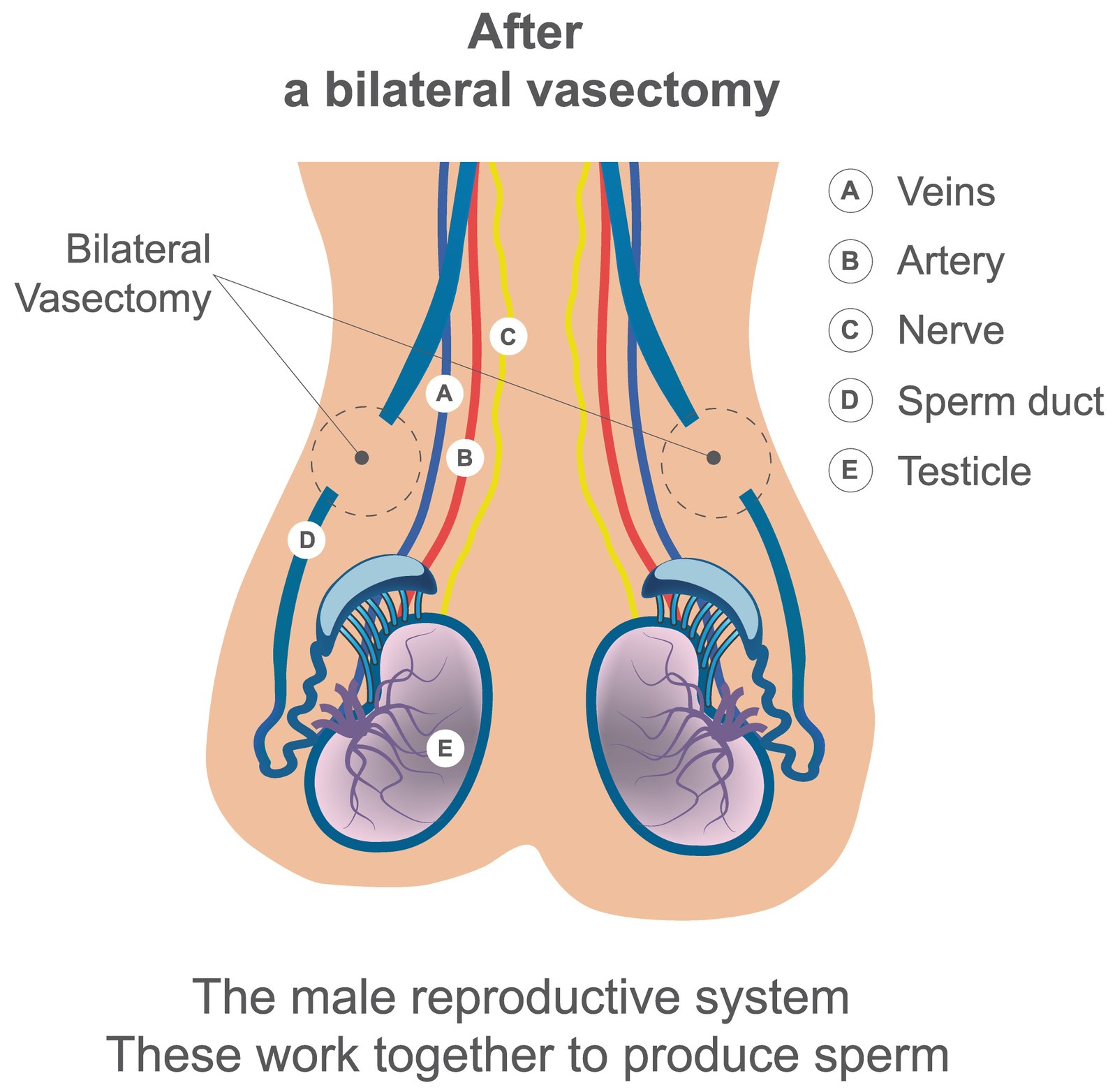What Happens to Sperm After Vasectomy
A vasectomy is a surgical procedure that provides a permanent form of male contraception. By cutting or blocking the vas deferens, the tubes responsible for transporting sperm from the testicles to the urethra, sperm become unable to mix with semen during ejaculation. This alteration in the reproductive process has several significant effects on sperm.

1. Sperm Production Continues
Contrary to popular belief, a vasectomy does not stop sperm production. The testicles will continue to produce sperm after the procedure, but the sperm are unable to leave the body.
2. Sperm Breakdown
Since the vas deferens are blocked, the sperm have nowhere to go. Over time, the body naturally reabsorbs the unused sperm cells. This process is similar to how the body eliminates old blood cells or absorbs other waste materials.
3. No Impact on Sexual Function
A vasectomy does not affect sexual function or pleasure. The only difference is that the ejaculated semen no longer contains sperm. This means that although orgasm and ejaculation still occur, they no longer have the potential to fertilize an egg.
Common Misconceptions
1. Immediate Infertility
It takes time for the remaining sperm to clear out of the reproductive system. Therefore, it is necessary to use alternative forms of contraception until the absence of sperm is confirmed by a post-vasectomy semen analysis.
2. Semen Composition
After a vasectomy, the semen's appearance, smell, consistency, and volume remain unchanged. The absence of sperm does not alter these characteristics, allowing for a seamless transition in the sexual experience for both partners.
3. Long-Term Viability
While sperm breakdown and reabsorption occur after vasectomy, it's crucial to note that the body continues to produce sperm indefinitely. In rare cases, the vas deferens can reconnect or form small pathways, potentially leading to a reestablishment of fertility. Consequently, regular follow-up semen analyses are advisable to ensure the continued absence of sperm.
In conclusion, a vasectomy involves blocking the vas deferens, preventing sperm from exiting the body during ejaculation. Although the body continues to produce sperm, they are naturally reabsorbed and do not affect sexual function or semen composition. However, it is important to use alternative contraception methods until post-vasectomy fertility is confirmed through a semen analysis. With proper post-operative care and follow-up, a vasectomy remains an effective and reliable choice for permanent male contraception.
Sources:
- Mayo Clinic. (2021). Vasectomy. Retrieved from https://www.mayoclinic.org/tests-procedures/vasectomy/about/pac-20384580
Related FAQs about what happens to sperm after vasectomy
What is a vasectomy?
A vasectomy is a surgical procedure that involves cutting or blocking the vas deferens, the tubes that carry sperm from the testicles to the urethra. It is a permanent form of male contraception.
Does sperm production stop after a vasectomy?
No, sperm production continues after a vasectomy. However, since the vas deferens are blocked, the sperm are unable to leave the body and are eventually reabsorbed by the body.
Does a vasectomy affect sexual function?
No, a vasectomy does not affect sexual function. It only prevents sperm from being present in the ejaculated semen. Orgasm and ejaculation still occur as before.
How long does it take for a vasectomy to become effective?
A vasectomy is not immediately effective. It takes some time for the remaining sperm to clear out of the reproductive system. Alternative contraception methods should be used until a post-vasectomy semen analysis confirms the absence of sperm.
Is a vasectomy reversible?
A vasectomy is considered a permanent form of contraception. While it is possible to attempt a surgical procedure called a vasectomy reversal, it is not always successful. Additionally, the chances of success decrease over time after the initial vasectomy.
Glossary about what happens to sperm after vasectomy
1. Vasectomy: Vasectomy is a surgical procedure that provides a permanent form of male contraception by cutting or blocking the vas deferens, the tubes responsible for transporting sperm from the testicles to the urethra.
2. Semen: Semen is the fluid that is ejaculated during sexual activity. It consists of sperm cells, seminal fluid, and other secretions.
3. Testicles: The testicles, also known as testes, are male reproductive organs responsible for producing sperm. They are located in the scrotum.
4. Vas deferens: The vas deferens is a long tube that transports sperm from the epididymis (a structure attached to the testicles) to the urethra during ejaculation.
5. Ejaculation: Ejaculation is the process by which semen is expelled from the penis, usually during sexual climax or orgasm.
6. Infertility: Infertility refers to the inability to conceive or achieve pregnancy after regular, unprotected sexual intercourse for a certain period of time. In the context of vasectomy, it refers to the desired outcome of the procedure.
7. Semen analysis: Semen analysis is a laboratory test performed to evaluate the quantity, quality, and mobility of sperm in a semen sample. It is often used to assess post-vasectomy fertility.
8. Mayo Clinic: The Mayo Clinic is a nonprofit academic medical center based in the United States. It provides expert medical care, conducts medical research, and offers education programs.
9. Reabsorption: Reabsorption is the process by which the body absorbs and recycles certain substances or cells. In the context of vasectomy, it refers to the body naturally eliminating unused sperm cells.
10. Contraception: Contraception refers to methods or devices used to prevent pregnancy. In the case of vasectomy, it is a permanent form of male contraception.
